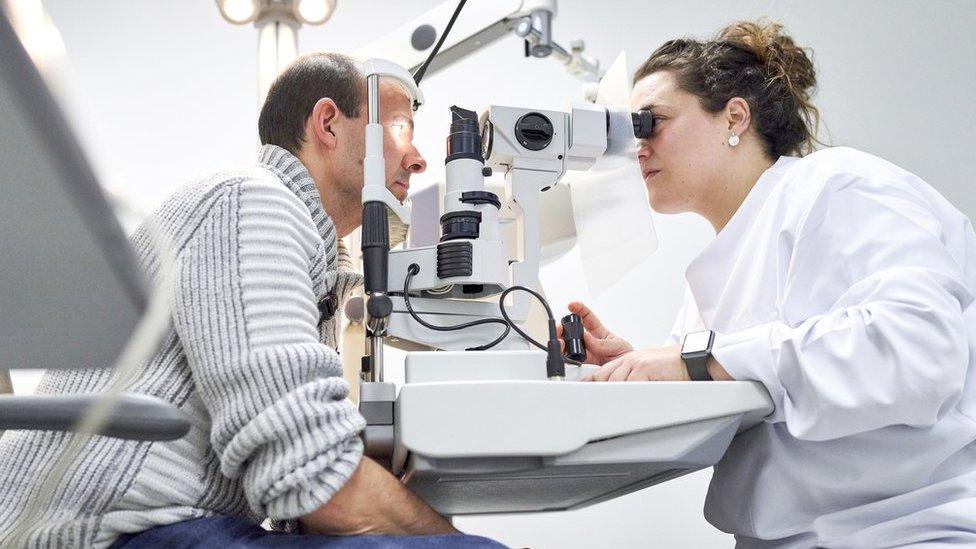ChatGPT 4 could be used to triage eye problems, say Cambridge academics
- Published

More than half of those waiting beyond the target time are at the greatest risk of sight loss
An academic researcher says artificial intelligence (AI) could be used to triage patients with eye issues.
Dr Arun Thirunavukarasu, who studied at the University of Cambridge, said AI could decide urgent cases that need to be seen by specialists.
Cambridge University academics tested ChatGPT 4 against the knowledge of medics at different stages of their career.
The AI program scored 69% when tested in a mock exam of 87 questions.
About 374 ophthalmology questions were used to train the ChatGPT 4.
Its answers were compared to five expert ophthalmologists - doctors who care for patients with eye conditions - three trainee ophthalmologists, and two unspecialised junior doctors.
They were also compared to an earlier version of ChatGPT and other language models.
ChatGPT 4 scored 69%, higher than other programs such as ChatGPT 3.5, Llama and Palm2.
Expert ophthalmologists achieved a median score of 76%, trainees scored 59% and junior doctors scored 43%.
Dr Thirunavukarasu, who led the study and carried out the work while studying at the University of Cambridge's School of Clinical Medicine, now works at Oxford University Hospitals NHS Foundation Trust.
He said: "We could realistically deploy AI in triaging patients with eye issues to decide which cases are emergencies that need to be seen by a specialist immediately, which can be seen by a GP, and which don't need treatment.
"The models could follow clear algorithms already in use, and we've found that ChatGPT 4 is as good as expert clinicians at processing eye symptoms and signs to answer more complicated questions."With further development, large language models could also advise GPs who are struggling to get prompt advice from eye doctors. People in the UK are waiting longer than ever for eye care."
The technology could be deployed to triage patients and determine who needs specialist care and who can wait to see a GP, researchers said.
They added that language models such as ChatGPT "do not appear capable" of replacing eye doctors, but could "provide useful advice and assistance to non-specialists".
Dr Thirunavukarasu added that he believed doctors would continue to be in charge of patient care.

Follow East of England news on Facebook, external, Instagram, external and X, external. Got a story? Email eastofenglandnews@bbc.co.uk, external or WhatsApp 0800 169 1830
Related topics
- Published4 January 2024
- Published13 August 2018